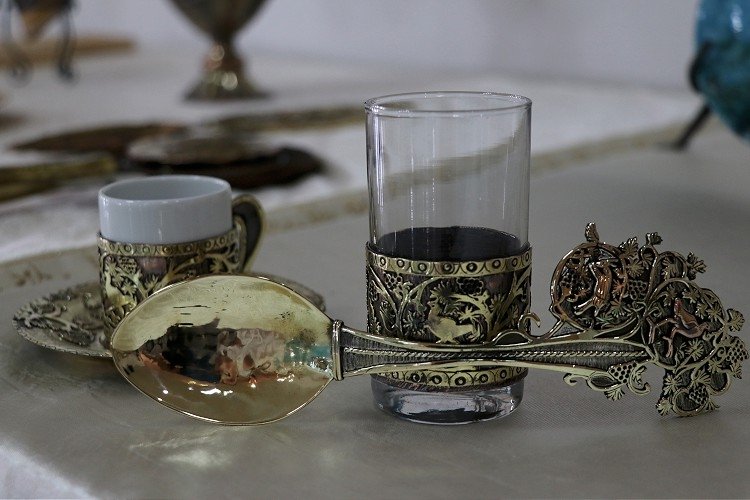
An institution in southern Adana province is reviving Roman-era mosaics unearthed during excavations in the Çukurova region by teaching workshop participants how to apply the mosaic patterns to a myriad of objects, from clothes to ceramics.
Mosaics excavated and exhibited in the Cukurova region, now covering the provinces of Adana, Osmaniye and Hatay, serve as the theme for the women training at the art design, jewelry and clothing workshops of the Adana Continuation Institute. The trainees apply the patterns of these mosaics on clothes, jewelry, accessories, ceramics, wooden and glass objects.
Speaking to Anadolu Agency (AA), Seher Coşkun, the institute's chairperson, said that they are working on different themes together with their trainees in order to keep the handicrafts alive and pass them on to future generations.

Noting that they applied the patterns of Turkish rugs to accessories in a previous project, Coşkun added that their latest focus is the mosaics unearthed in their region. "Rome was one of the most impactful civilizations in Çukurova so we chose it as our theme."
As part of their latest project, the institutes organized study visits to museums in Adana, Osmaniye and Hatay provinces so that the female trainees could examine the mosaics exhibited there. The trainees then set to work depicting these patterns on cup sets, jewelry, covers, clothing and more. So far, they have prepared a collection of approximately 60 pieces. "We're ambitious in doing this. We plan to sell our pieces in museums," Çoşkun added.
